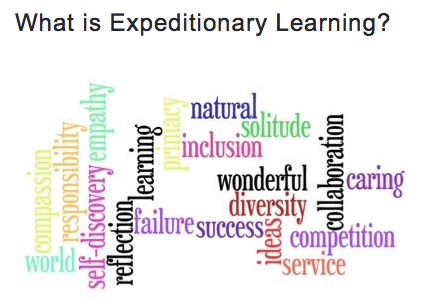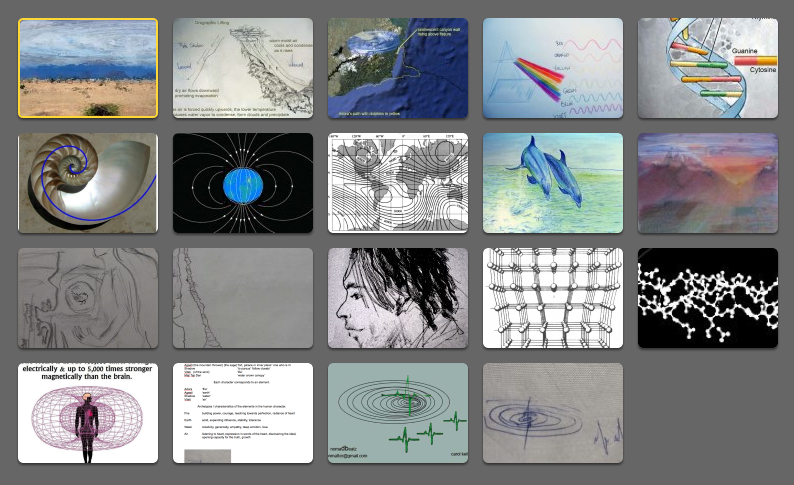Body and the Brain | Expeditionary Learning | Montessori ‘Hands-on’ Learning
March 31, 2015 1 Comment
Back when I was on my way hitchhiking to San Francisco in 2012, I encountered some teachers who had just attended a conference on the subject of Expeditionary Learning. I wrote about it. https://carolkeiter.wordpress.com/2012/05/17/hitchabout-san-francisco_expeditionary_learning/
Several days ago the subject of Montessori schools and hands-on learning popped up. I had to investigate if these are in fact, two ways of saying the same thing. I have a feeling that they are. Well, ‘jein’ as a German would say, ja und nein (yes and no) together! They are and they aren’t the same. They are two distinct schools of learning, yet, quite parallel and sort of extensions or facets of one another – in that they are each rigorously proponents of hands-on, getting intimately involved in the entire scope of learning about a subject, interdisciplinary and relying on your own curiosity to motivate you to further investigation. Both involve exploring cooperatively as a group and diving into the whole scope, rather than slicing off disparate parts.
The area of study is called embodied learning.
As young children move and explore their worlds, they are learning through touch. Early bimanual training correlates with the robustness of the corpus callosum, a part of the brain that facilitates quick communication between the left and right brain hemispheres.
Just as body movement and involvement can have a huge impact on learning, so too can the spaces where we learn.
This article featured on KQED news written by Katrina Schwartz March 26th, 2015 “Why Kids Need to Move, Touch and Experience to Learn” describes how Maria Montessori, founder of Montessori Schools, highlighted the connection between minds and bodies in her 1936 book The Secret of Childhood “Movement, or physical activity, is thus an essential factor in intellectual growth, which depends upon the impressions received from outside.
Through movement we come in contact with external reality, and it is through these contacts that we eventually acquire even abstract ideas.”
Maria Montessori was best known for her philosophy of education that bears her name. It is an educational approach based on the model of human development.
I see that yes, Expeditionary Learning is an extension of what the Montessori school education is for children at a younger age. The Montessori Method are classes which consist of children of different ages together in what resembles more of a real world environment. The younger children (age 3 to 5) focus their ‘work’ on materials that develop cognition through seeing, tasting, smelling and touch through direct experience. Elementary-age children in the upper grades shift away from the concrete (sensory) to focus more on abstract tasks. The materials and curriculum are inter-disciplinary, and children begin to apply their knowledge to the real world. For example, students may study a map of Europe, and not only learn about it in terms of geography, but also incorporate learning about art and history of the continent; a process which allows the topic to be studied from the whole, not merely discrete separate parts.
http://en.wikipedia.org/wiki/Expeditionary_learning_schools (ELS) are models of comprehensive school reform based on the educational ideas of German educator Kurt Hahn, the founder of Outward Bound. There are more than 150 expeditionary learning schools in 30 states and the District of Columbia. They are exemplified by project-based learning expeditions, where students engage in interdisciplinary, in-depth study of compelling topics, in groups and in their community in which the students become involved with real topics, in real communities, involving the various different subjects that otherwise would be isolated and sliced out of the entire picture. The emphasis is on people working together and involvement in the whole picture.
Open World Learning http://open.spps.org/expeditionary_learning informs us that Expeditionary Learning is built on ten design principles that reflect the educational values and beliefs of Outward Bound. These principles also reflect the design’s connection to other related thinking about teaching, learning, and the culture of schools.
1. Primacy of self-discovery – Learning happens best with emotion, challenges and support…students undertake tasks that require perseverance, fitness, craftsmanship, imagination, self-discipline, and significant achievement. A teacher’s primary task is to help students overcome their fears and discover they can do more than they think they can.
2. Having wonderful ideas – Fostering curiosity about the world and giving students something important to think about, experiment and make sense of what they are observing.
3. Responsibility for Learning – Learning is both a personal process of discovery and social activity. It encourages both children and adults to become increasingly responsible for directing their own personal and collective learning.
4. Empathy and Caring – Students’ and teachers’ ideas are respected and where there’s mutual trust. Out of the hierarchy, into having an adult being an advocate and older students mentoring younger ones.
5. Success and Failure – Students need to be successful to build confidence and the capacity to take risks and meet increasingly difficult challenges. Yet students must learn from their failures and learn how to turn obstacles into opportunities.
6. Collaboration and Competition – Students are encouraged to compete against their personal best, not against each other. Individual and group development are encouraged and integrated towards valuing friendship, trust and group action.
7. Diversity and Inclusion – Students investigate and value their different histories and talents as well as those of other communities and cultures. They recognize that diversity and inclusion increase the richness of ideas, creative thinking and problem solving.
8. Natural World – A direct and respectful relationship with the natural world refreshes the human spirit and teaches the important ideas of recurring cycles and cause and effect. Students learn to become stewards of the earth and of future generations. 9. Solitude and Reflection – Students and teachers need time alone to explore their own thoughts, make their own connections and foster their own ideas and thinking, They can then exchange these reflections with others.
10. Service and Compassion – We are crew, not passengers. Students and teachers are strengthened by acts of consequential service to others, and one of an Expeditionary Learning school’s primary functions is to prepare students with the attitudes and skills to learn from and be of service.







